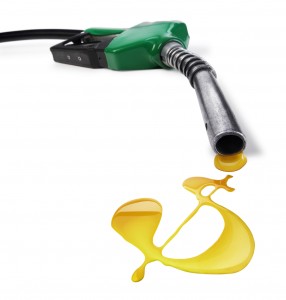 The typical boater only operates his or her vessel about 75 hours a season. Nearly 95 percent of boats on the water today are less than 26’ in length. These crafts do not require exorbitant amounts of gas, so any impact would be negligible. In fact, 64 percent of boaters say they purchase less than fifty gallons of gas per season—roughly two trips to the gas station to fill up your SUV or Minivan. Keep in mind; boating is not an activity like driving where you are using gas all the time. When a person is boating, they may be fishing or swimming and not using the motor at all. If you own a sailboat the motor is used even less. Higher fuel prices present a marginal increase in the operating cost of your boat. For owners of $500,000 boats that use 100 gallons in a weekend, a 50 cent increase in gasoline means that a weekend of fun on the water will cost $50 more, while owners of smaller boats that use 20 gallons of gas will end up spending $10 more on gas. The small increase in operating cost is not expected to limit boaters’ time on the water.
The typical boater only operates his or her vessel about 75 hours a season. Nearly 95 percent of boats on the water today are less than 26’ in length. These crafts do not require exorbitant amounts of gas, so any impact would be negligible. In fact, 64 percent of boaters say they purchase less than fifty gallons of gas per season—roughly two trips to the gas station to fill up your SUV or Minivan. Keep in mind; boating is not an activity like driving where you are using gas all the time. When a person is boating, they may be fishing or swimming and not using the motor at all. If you own a sailboat the motor is used even less. Higher fuel prices present a marginal increase in the operating cost of your boat. For owners of $500,000 boats that use 100 gallons in a weekend, a 50 cent increase in gasoline means that a weekend of fun on the water will cost $50 more, while owners of smaller boats that use 20 gallons of gas will end up spending $10 more on gas. The small increase in operating cost is not expected to limit boaters’ time on the water.
Quick Tips for Reducing Fuel Usage:
Slower speeds on the water will reduce fuel usage.
- ·Proper use of trim tabs reduce drag, especially while accelerating up to planing speeds.
- ·Minimize the amount of time that you idle at the dock
- ·Minimize the use of onboard generators.
- ·Use dock-side electrical power in lieu of generators.
- ·Have a float plan so you know exactly where you’re going.
- ·Make sure the hull is clean.
- ·Don’t under-power your boat. It’s important you have enough motor to handle the load.
- ·Check your propeller. If your boat is slow “out of the hole” or lacks top-end speed, you might have the wrong propeller.
- ·A well-tuned engine uses less fuel.
- ·Use the grade of gasoline specified by the engine manufacturer.
Ten Tips for Clean and Green Boating
- Prevent oily discharges from the bilge. Keep your engine well-tuned to prevent fuel and oil leaks. Secure an oil absorbent pad or pillow in your bilge and under your engine where drips may occur. Check the pads often, do not let them clog the bilge pump, and dispose of them as hazardous waste at a marina or local hazardous waste collection center.
- Spill-proof your oil changes. For oil changes, use an oil change pump to transfer oil to a spill-proof container. Wrap a plastic bag or absorbent pad around the oil filter to prevent oil from spilling into the bilge.
- When fueling, stop the drops! Prevent fuel spills by filling fuel tanks slowly and using absorbent pads or rags to catch drips and spills. Don’t “top off” or overflow your fuel tank. Leave the tank 10% empty to allow fuel to expand as it warms.
- Do not add soap. Never use soap to disperse fuel and oil spills. It increases harm to the environment, and it is illegal.
- Minimize boat cleaning and maintenance in the water. If possible, save maintenance projects for the boatyard. When performing work on the water minimize your impact by containing waste. Use tarps and vacuum sanders to collect all drips and debris for proper disposal.
- Reduce toxic discharges from bottom paints. Minimize the discharge of heavy metals found in soft-sloughing antifouling paints by using a less toxic, or nontoxic antifouling paint. Use only non-abrasive underwater hull cleaning techniques to prevent excessive paint discharge. Remember, dry storage reduces the need for antifouling paints and saves money.
- Dispose of hazardous waste properly. Dispose of paints, batteries, antifreeze, cleaning products, oil, oil filters and other hazardous wastes at a hazardous waste collection facility or event.
- Plan A-head! Manage sewage wastes properly. Never discharge sewage within 3 miles of shore. Use harbor pump-out stations and shore-side facilities. If you don’t have an installed toilet, use a port-a-potty and empty it at a harbor dump station or bathroom.
- Stow it, don’t throw it! Keep your trash on board. Never throw cigarette butts, fishing line, or any other garbage into the ocean. Take advantage of shore-side facilities to recycle plastic, glass, metal, and paper.
- Reduce greywater discharges. Use a phosphate-free biodegradable soap to minimize the impacts of greywater on the marine environment. Also, minimize discharge by doing dishes and showers on shore whenever possible.
Follow Us: Facebook – Foursquare – Twitter – YouTube – LinkedIn
http://www.discoverboating.com/resources/article.aspx?id=283
“Earth911.com – Find Where and How to Recycle.” Earth911.com – Find Where and How to Recycle. Web.
